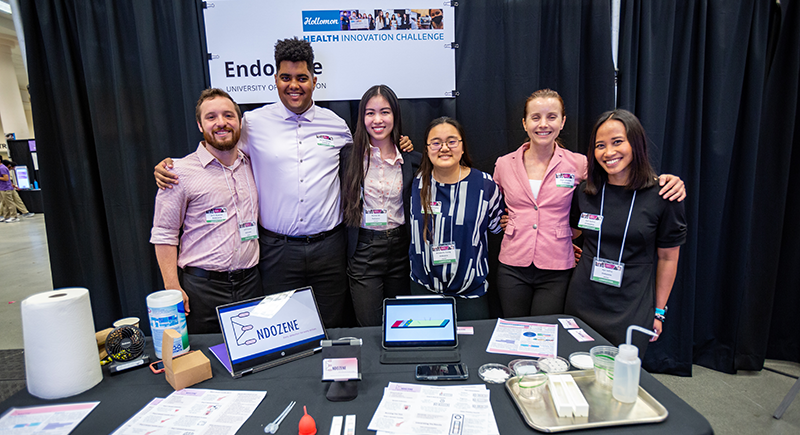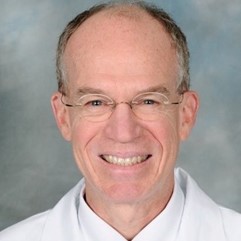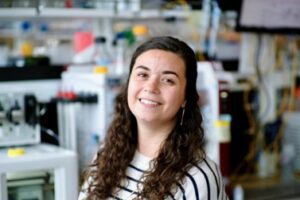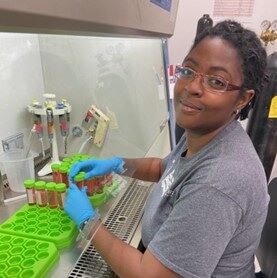
MAB students displaying their invention at the Holloman Health Innovation Challenge
Invent the Future of Medicine
The Master of Applied Bioengineering (MAB) is a three quarter (Early Fall – Spring of the following year) full time professional master’s degree program.
The Master of Applied Bioengineering trains students to apply engineering design to address today’s clinical challenges and fulfill the market-based demands of industry and medicine for biotechnology. Students collaborate with world-class faculty from UW Bioengineering and UW Medicine to transform biomedical research into technologies for improving patient care. Graduates have in-demand skills for work in biomedical industries and translational research.
[MAB] gave me the skills I needed to network and break into a different career field. The internship requirement helped me get my foot in the door in this field.

Advisors and professors in the program were hugely helpful in reviewing my materials and better preparing me while searching and applying for jobs. I can confidently say that I wouldn’t be where I am today without my experience in the MAB program.
While the procedures we witnessed were great to see, it was really inspiring to know we were working on projects that clinicians and patients actually cared about.
 [The program] has helped [our startup] better navigate our course through the gamut of FDA and other regulatory requirements.
[The program] has helped [our startup] better navigate our course through the gamut of FDA and other regulatory requirements.
Master of Applied Bioengineering at a glance
- Clinical focus: Students collaborate with UW Medicine clinicians and faculty to identify unmet clinical needs, and learn about clinical culture and ethics
- Range of emphasis areas: Students select a technical focus for their coursework, and the curriculum is focused in areas in which Bioengineering faculty are acknowledged leaders.
- Solve real clinical problems: Students take a health care-focused team design project through the whole design process.
- Entrepreneurial focus: Student gain specialized knowledge about biomedical technology commercialization, including clinical trials and research, market analysis, business strategy development and regulatory compliance.
- Mentorship: Students work with leaders in academia, clinical research institutions and industry, and gain professional skills including resume writing, interviewing and job search.
- A foundation for career success: Students graduate with the ability to plan, design and develop biomedical technologies, effectively lead project teams and understand regulatory affairs.
- What do our alumni do: We see that 90% of our graduates are employed in industry, start-ups, academic research, non-profits, or government agencies within 6 months of graduation. Our remaining 10% pursue further education as medical students or PhD students.
Master of Applied Bioengineering program features
Apply to UW Bioengineering’s Master of Applied Bioengineering (MAB) program – GRE Scores Now Optional
We have several application options. Please pick the one that works best for you.
We will consider applications received after April 30th on a rolling basis pending available space. If you’re an international candidate we strongly encourage you to apply by April 30th in order to secure your visa.
Get on the fast track to inventing the future of medicine.





